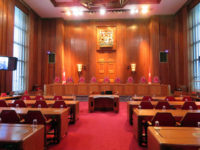Policy makers have long struggled to strike a fair balance in crafting rules to address allegations of copyright infringement on the Internet. Copyright owners want to stop infringement and the right to pursue damages, Internet subscribers want their privacy and freedom of expression rights preserved in the face of unproven allegations, and Internet providers want to maintain their neutrality by resolving the disputes expeditiously and inexpensively.
My Globe and Mail op-ed notes that the Canadian system for online infringement was formally established in 2012 and came into effect in 2015. The so-called “notice-and-notice” approach grants rights holders the ability to send notifications of alleged infringement to Internet providers, who are required by law to forward the notices to the relevant subscriber and to preserve the data in the event of future legal action. The system does not prevent rights holders from pursuing additional legal remedies, but Internet providers cannot reveal the identity of their subscribers without a court order.











